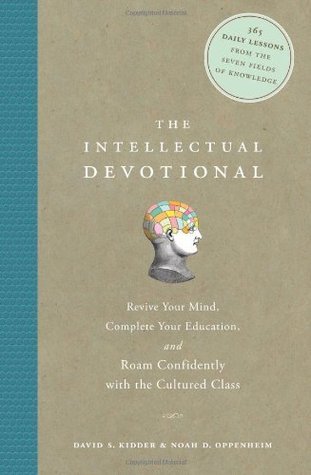More on this book
Kindle Notes & Highlights
Read between
December 30, 2011 - May 25, 2012
eighteenth century, the word gothic was associated with fiction that emphasized the grotesque and mysterious;
perception of pain, called nociception,
Different parts of the brain work together in a network to form what is sometimes called the pain matrix.
The sensation of pain triggers the feeling of distress, thanks to a part of the brain called the anterior cingulate cortex. Interestingly, it does not distinguish between physical and emotional pain.
empathizing with others have more active anterior cingulate cortices.
feel pain at twenty-nine weeks, well into the third trimester.
cases were some of the first evidence that pain comes, in part, from the brain.
Monteverdi (1567–1643) was the most influential composer of the early baroque,
In the baroque, leading male roles in operas were often performed by castrati, singers who had been castrated before puberty to maintain their high vocal ranges.
landmark protest novel that introduced absurdity and surrealism into mainstream American literature.
Squadron commander Major Major Major Major (so named because his father thought it would be funny) is promoted all the way to the rank of major by a computer glitch on the first day of his career.
cathedral was built on the site of an ancient Roman temple dedicated to Jupiter that was replaced in 528 by a Christian church.
Construction on the new cathedral began in 1163 and continued until the beginning of the fourteenth century.
Victor Hugo wrote The Hunchback of Notre Dame (1831) in order to raise public awareness of Notre Dame’s history at a time when the building was in danger of being razed. 2. Kilomètre zéro, which marks the starting point for all distances measured on French highways, is located on the square in front of the cathedral.
placebo effect is the beneficial influence of a treatment that has no medical value.
less understood but equally powerful nocebo effect.
Painful injections may have more therapeutic value than ones that hurt less.
Socrates is a substance because we say, “Socrates is pale.” Aristotle called certain qualities of substances, such as the quality of being pale, accidents. Accidents are things said of substances;
An example of an accidental change is when Socrates goes from being pale to being tan, after spending time in the sun. Socrates, the substance, persists, and what changes are mere accidents of Socrates, his paleness and his tan. An example of a substantial change is the death of Socrates.
Aristotle’s hylomorphism had a huge impact on Western Christianity, through St. Thomas Aquinas, who made it one of the pillars of his own metaphysics.
Charlemagne’s legacy is still seen across Europe—literally. Recent genetic studies show that a large percentage of Europeans descend from the Frankish king. He is considered one of the founding fathers of France and Germany.
Born in the town of Aracataca in northern Colombia in 1928, García Márquez grew up immersed in family stories told and retold by his elders, particularly his grandparents.
One Hundred Years of Solitude (1967), a sprawling tale of six generations in the fictional town of Macondo.
history of the town and its founders—the Buendía family—mirrors the historical trends of Latin America as a whole: As Macondo comes into increasing contact with the outside world, it passes from unspoiled pastoral isolation through civil war, dictatorship, labor unrest, and other hardships that accompany the transition to modernity.
magic realism—a mix of highly realistic depiction with significant elements of the fantastic and supernatural.
refers to the rebirth of Greek and Roman culture.
Italian poet Francesco Petrarch developed a philosophy that placed great value on individualism and human achievement.
two leading theories of inheritance. The first stated that the traits of parents blend together equally to create a child. The second proposed that the environment in which a child was conceived shaped the child’s features.
Mendel’s work was largely ignored in his lifetime, and he died in obscurity.
Vivaldi was stunningly prolific,
most of his pieces are instrumental,
Vivaldi revolutionized the role of the soloist,
Vivaldi also had a huge influence on Johann Sebastian Bach and on the composers of the classical era
Logic is the study of formally valid arguments.
1. p 2. If p then q 3. Therefore, q
Ever since Aristotle developed the first logical system, logic has often been considered the first subject one should learn in philosophy.
Eventually, David was chosen to succeed Saul as Israel’s second king.
As king, David unified the Northern and Southern tribes of Israel and moved the capital to Jerusalem.
With the fall of London, King John negotiated a settlement
settlement was a guarantee of basic liberties and a series of limits on the absolute power of the king, summarized in a proclamation called the Magna Carta.
Magna Carta is considered the bedrock of freedom and rule of law in England and the earliest seed of constitutional monarchy.
Four original copies of the Magna Carta survive. Two copies are stored at the British Library while the others can be seen in the cathedral archives at Lincoln and Salisbury.
celebrating instead the sublimity of nature and the power of human emotion, passion, and freedom.
a Petrarchan sonnet, like “Ozymandias,” typically is divided into two parts: the opening eight lines, or octave, and the final six, or sestet. Often, the octave poses a question that the sestet answers;
Implicit in “Ozymandias” is the suggestion that there is more lasting value in art than in any temporal political authority.
“Ozymandias” was inspired by a fallen statue at the funerary temple of Ramses II near Luxor, Egypt.
The Birth of Venus by the Italian painter Sandro Botticelli
painted in tempera on wood
In the 1480s Botticelli was commissioned by the Medici to execute a series of large-scale paintings that combined pagan mythology with Christian concepts.
Water is the strangest, most ubiquitous substance on earth.


